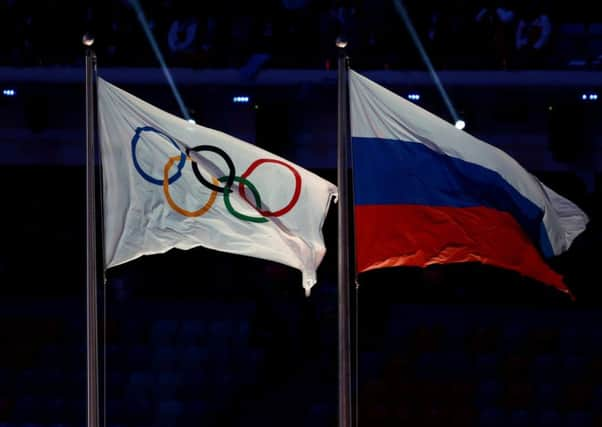YP Comment: Time to ban Russian team - IOC delays doping decision


It attempted to deflect criticism by saying it would “explore the legal options” over implementing a collective ban of all Russian athletes.
But such dithering comes despite the World Anti-Doping Agency (Wada) joining calls from national anti-doping agencies and athletes’ groups for a blanket ban to be imposed on Russia for next month’s Games.
Advertisement
Hide AdAdvertisement
Hide AdThere is no credible alternative course of action in the face of Canadian law professor Richard McLaren’s report, commissioned by Wada, which showed evidence of a four-year, state-sponsored doping programme.
The report revealed the Russian Sports Ministry controlled a cynical scheme to make a mockery of international anti-doping rules and effectively sabotage fair competition at several major events, including London 2012 and the 2014 Winter Olympics in Sochi.
The evidence is unequivocal and what is needed from the IOC is a firm hand. The question of doping cannot be allowed to continue to cast a shadow over sport. If the Russian team is banned it will be heartbreaking for those ‘clean’ athletes who have trained for months, or even years, for this moment only to have it cruelly taken away from them. But there is more at stake here than the right of sportsmen and women from one country to compete.
The Olympic Games were borne out of Corinthian ideals of fair play and endeavour and we saw in London four years ago what a powerful and galvanising effect they can have.
Advertisement
Hide AdAdvertisement
Hide AdThe Olympics are a symbol of humanity at its best. We must not allow this tawdry behaviour to sully everything they stand for. If we do then what kind of message does that send out to future generations?
Broadband concerns
A scathing new report by MPs on the quality of broadband provision across the UK says that BT must put its house in order or face being split.
This is the damning conclusion reached by the Culture, Media and Sport Select Committee in its report which criticises the telecoms giant for failing to invest millions of pounds each year in infrastructure. As a result, some areas of Yorkshire have been left without broadband access while others have been left with a poor internet service.
The situation has become so bad that in one West Yorkshire village, half the residents have superfast broadband while the other half have been left waiting in vain. This is simply unacceptable and highlights once again that we still have far too many homes and businesses languishing in the technological dark ages.
Advertisement
Hide AdAdvertisement
Hide AdThe committee’s report found that BT is “significantly under-investing” in Openreach, which is responsible for rolling out super-fast broadband across the UK, prompting MPs to call for tougher penalties for poor service. They are right to do so because businesses today simply cannot operate without the internet.
But this is not just about the economy, crucial as it is, it is also about quality of life. In this day and age people expect super-fast broadband whether they live in our towns and cities, or in the countryside.
The future sustainability of many communities depends on their ability to attract new families and they simply won’t be able to do so without the guarantee of 21st century communications.
It is up to the big telecoms firms to ensure that this doesn’t become yet another postcode lottery.
Lost summers
Advertisement
Hide AdAdvertisement
Hide AdWhen it comes to a crumbling monument or a dilapidated theatre, we Brits are generally pretty good at rallying the troops.
Campaigns have been mounted, posters printed and petitions signed to prevent countless treasured buildings from being consigned to history and people power tends to win the day.
But how do we protect less tangible elements of our national character from disappearing? According to new research, most of us have never made lemonade, we no longer wear whites to play tennis and jam-making is fast becoming a dying art.
A few years ago all these and more were all part of a quintessential British summer and we shouldn’t let them go without a fight.
Advertisement
Hide AdAdvertisement
Hide AdThere is only one thing for it. We all need to get out our recipe books, learn the rules of croquet and promise that we will neatly press our tennis shorts. If we don’t find a way to channel a little of that famous WI spirit, we will wake one day to find the sun has set on these very British traditions.